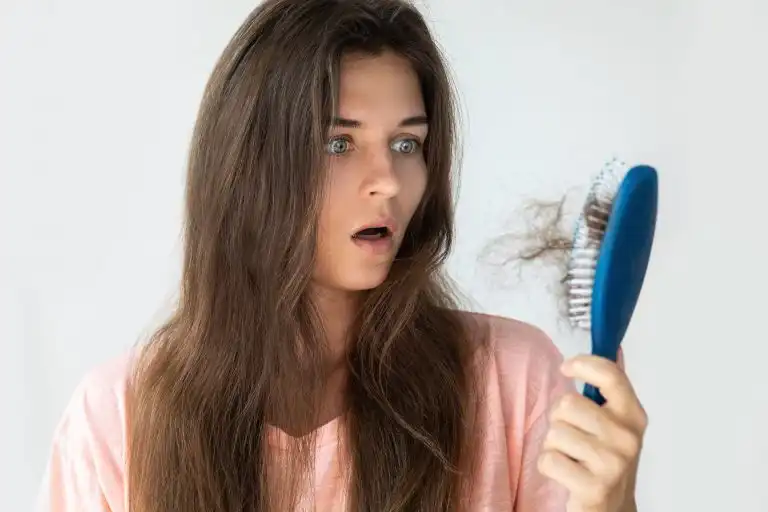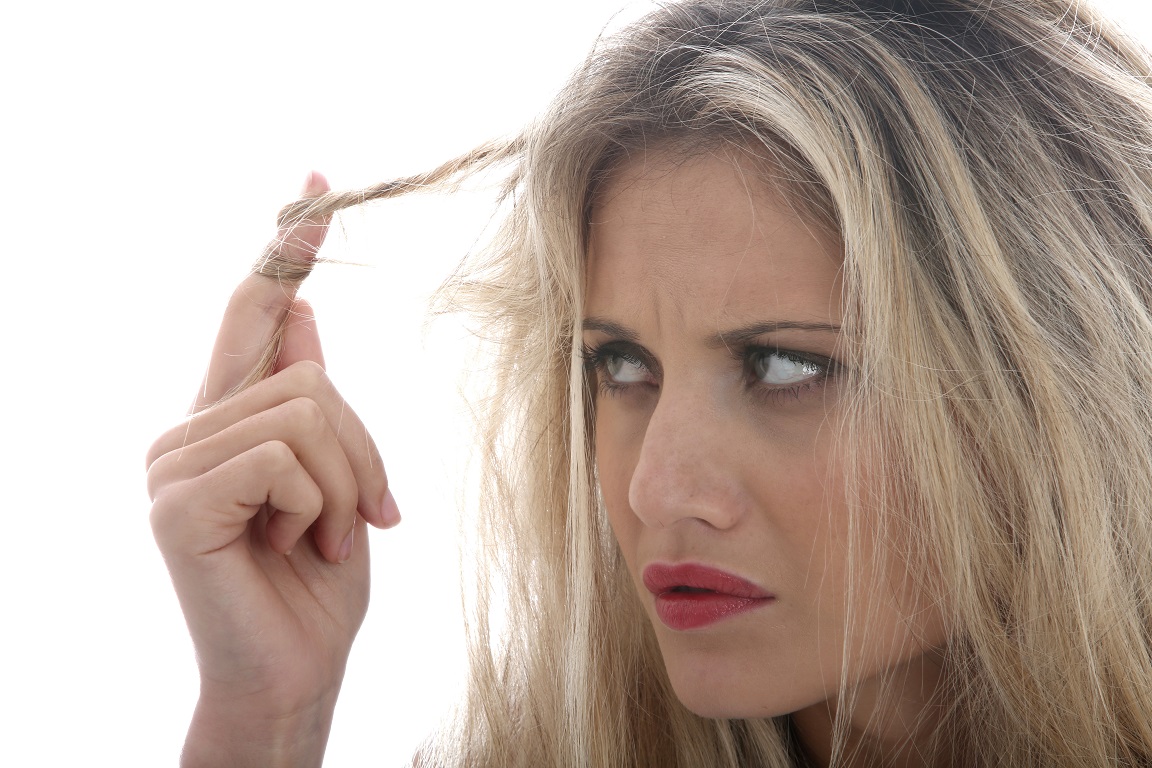Your hair cells are the second fastest-growing cells in your body (second only to intestinal cells). To add to this, you have roughly 120,000 hairs on your scalp, all of which need nourishment in order to grow.
But because hair is not a vital organ or tissue, your body will never prioritise its nutritional needs.
Nutritional deficiency may impact both hair structure and hair growth
Causes:
- Deficiency in Vitamin C, D and E and iron deficiency.
- Diffuse alopecia seen in niacin deficiency
- Sudden change in caloric intake, can lead to change in blood flow to the scalp. This change may lead to a change in hair quality, or increased shedding.
- Not enough protein in diet as Hair is made up of proteins, most notably keratin can cause shedding and hair loss
- deficiency in biotin can cause hair thinning and hair loss
- The mineral zinc, which supports normal cell function and helps the body synthesize proteins. Zinc deficiency has been identified as a key nutritional component in telogen effluvium hair loss seen in hypothyroidism.
Diagnosis:
Hair loss needs to be assessed by a through physical exam, and then order bloodwork typically tests for iron deficiency and anaemia, vitamin D deficiency, thyroid abnormalities, and autoimmune issues
Diet Tips to Improve to prevent hair loss:
- Eat a balanced and nutritious breakfast of proteins and complex carbohydrates to give your hair a nutritional boost.
- Drink approximately 1.5-2 litres of water a day depending on your activity level and climate
- To sustain energy levels to your follicles, snack between meals on a complex carbohydrate, such as fruit, vegetables, wholemeal bread or wholemeal crackers.
- Eating a portion of high-protein food with breakfast and lunch (for example, fish, chicken, lean meat, eggs, beans, quinoa, tofu, seitan, legumes, nuts).
- Ferritin (stored iron) levels are extremely important for hair growth. Try to eat lean red meat at least twice a week, especially if you are menstruating. Otherwise, try adding an iron nutritional supplement to your diet.
- Iron can only be absorbed effectively if you are ingesting it alongside vitamin C. Drink a glass of freshly squeezed orange juice, or eat one of your favourite fruits / vegetables to help with iron uptake
- Dairy products are a great source of calcium. However, if you are prone to dandruff, eczema or psoriasis, dairy can exacerbate or trigger the condition.
- Eating a varied diet will help ensure you are getting a wide-range of essential vitamins and minerals.












